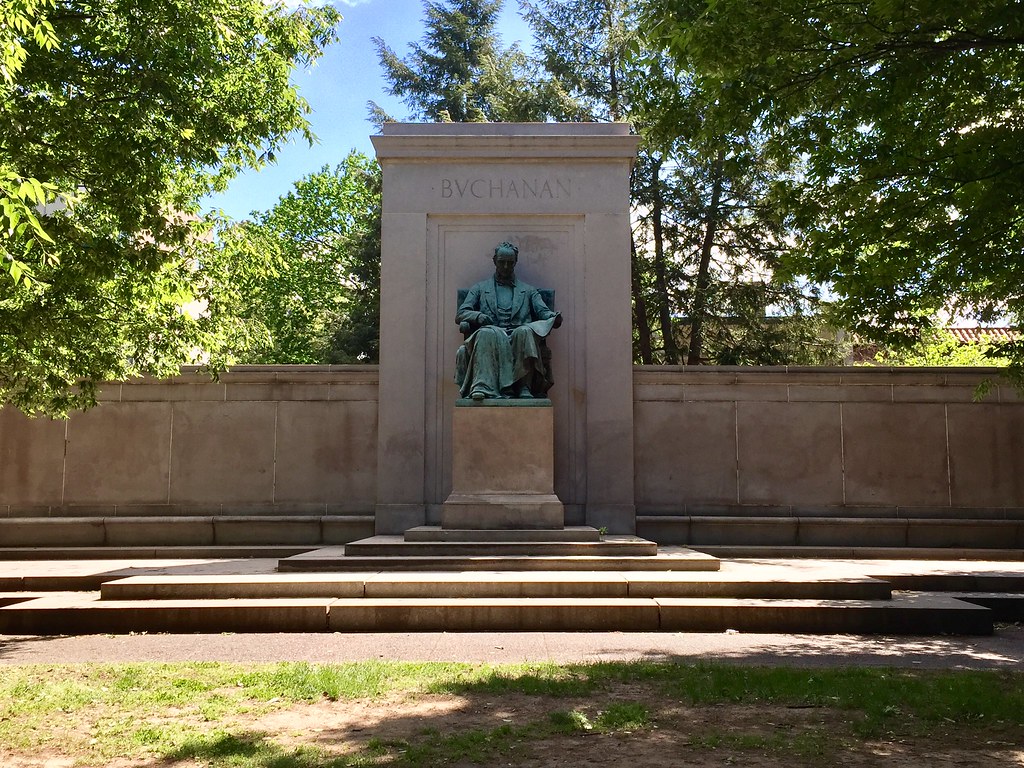Covered in green pollen and tucked in a corner of Meridian Hill Park, it’s a monument that attracts little attention. Dog walkers and runners pass by the bronze sculpture without a second glance. A seated figure, looking down, on a marble plinth.
It’s James Buchanan, the worst President ever, according to a new biography by Robert Strauss.
If you remember Buchanan at all, it’s for doing nothing as Southern states seceded from the union after Lincoln’s election. But you don’t become the worst President though sins of omission; you become the worst by making a series of terrible decisions. In four short years, Buchanan:
- Lobbied for the Dred Scott decision by the Supreme Court, believing that it would settle the issue of slavery. Instead, it spread the bacillus of this poison to the North, whose citizens now found themselves legally obligated to help slavers.
- Failed to intervene during the Panic of 1857, an economic crash caused by Dred Scott, for it unsettled the issue of whether future states would be slave or free. Emigration to the west dropped, railroads failed and millions went broke.
- Made a martyr out of John Brown by handing him over to Virginia to hang for his role in the Harpers Ferry raid.
- Allowed Southern states to seize federal forts and armories after the election of Lincoln, arguing that while states had no right to secede from the Union he had no right to use force against them.
After the Civil War, Buchanan was condemned as a “doughface”, a Northerner with Southern sympathies. His photo hung in stores with “TRAITOR” written under it. In Worst. President. Ever., there’s a story, probably apocryphal, of Buchanan fretting in his Pennsylvania estate as Lee’s armies approached, finally realizing his misdeeds.
Buchanan has his defenders, however. John Updike examined the life of his fellow Pennsylvanian in Memories of the Ford Administration, a novel mixing fact and fiction, arguing that Buchanan and the malaise-filled 1970s were both misunderstood.
The life of Buchanan becomes relevant only when America faces a leadership crisis. Then, our thoughts turn back to history, to the worst possible outcome. By this point in his term, Buchanan had ushered in the Dred Scott decision, a very lawyerly interpretation of the Constitution that united anti-slavery forces. A deal was no longer possible. As Lincoln said in 1858:
A house divided against itself cannot stand.
The Buchanan Memorial remains, forgotten, overgrown, a convenient sleeping spot for the homeless. Worst President Ever, an ignominious title for James Buchanan and one that may soon be taken from him.
